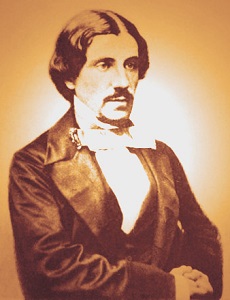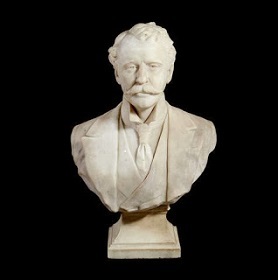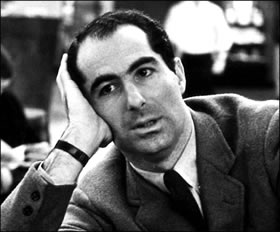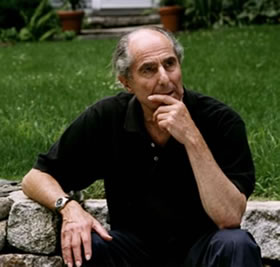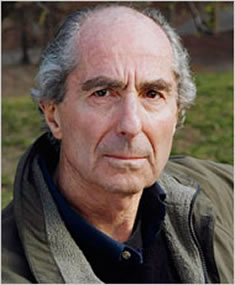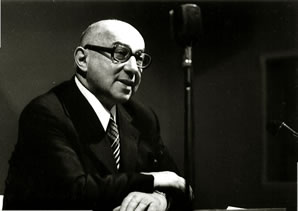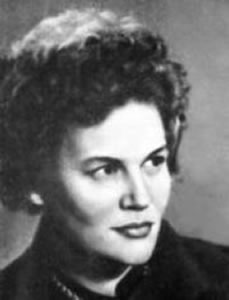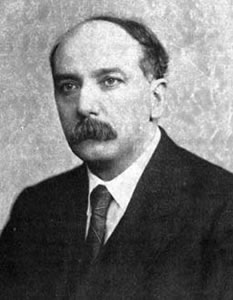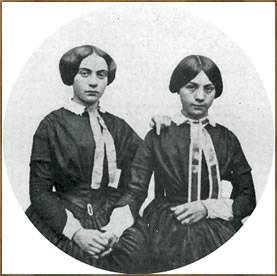De Nederlandse schrijver Mano Bouzamour werd geboren op 19 maart 1991 in Amsterdam. Zie ook alle tags voor Mano Bouzamour op dit blog.
Uit: Bestsellerboy
“De herder en ik kwamen bij een heuvel aan. Daar dook hij de bosjes in. Waarschijnlijk om te schijten.
De wijn verzachtte niets van mijn pijn. Het verergerde het juist. Het liefst wilde ik nu eigenlijk dood. Levend in de warme woestijngrond worden begraven. Ik had drie jaar van mijn leven verspild aan een boek dat godverdomme nooit gepubliceerd zou gaan worden. Van mijn negentiende tot mijn tweeëntwintigste. Cruciale jaren compleet naar de haaien. Iedere nacht tot drie, vier, vijf uur ’s nachts zitten tikken alsof ik de tering uit mijn tengels probeerde te typen. Om maar te zwijgen over de jaren van koortsachtige zelfstudie.
Wat in jezusnaam moet ik nu doen met mijn leven?
Ik begon tegen mezelf te praten, dialogen met mezelf te voeren, alsof ik een gespleten persoonlijkheid had.
‘Dacht je serieus dat je kon schrijven?’
‘Wat een giller.’
‘Niemand in je omgeving kan een behoorlijk zinnetje opschrijven, laat staan een fucking roman.’
‘En jij dacht dat jij dat wel kon?’
Om mezelf nog meer te tergen, herhaalde ik wat de redactrice tegen mij zei – ik deed haar helse stem zelfs na.
‘Gedraag je niet als een proleet, Mohamed. Gedraag je niet als een proleet, Mohamed. Gedraag je godverdomme niet als Mohamed, de proleet.’
Toen schrok ik op uit mijn zelfbestraffende gedachten.
De verspreking bleek een goddelijke ingeving.
Mohamed, de proleet.
Dat wordt de titel van mijn debuutroman!
Als die ooit wordt uitgegeven. En alsof de goden met mij probeerden te communiceren en te beamen dat wat ik dacht het juiste was, waren er geleidelijk aan, uit alle windstreken, godsdienstige geluiden te horen.
De muezzins zongen de gebedsoproepen vanuit de minaretten van de moskeeën.
Op dat moment ging mijn telefoon trillend over.
+31206241934.
Ik nam niet op. Het kon me even geen moer schelen wie belde. Ik absorbeerde tevreden de harmonieuze geluiden. Bovendien wilde ik niet voor de extra kosten opdraaien. Ik werd nog een keer gebeld. Bij de derde keer kreeg mijn nieuwsgierigheid de overhand, ik nam op en zette de telefoon op luidspreker.”

Mano Bouzamour (Amsterdam, 19 maart 1991)
De Duitse literatuurwetenschapper, schrijver, criticus, jurist en socioloog Hans Mayer werd geboren op 19 maart 1907 in Keulen. Zie ook alle tags voor Hans Mayer op dit blog.
Uit: Du störst mich nicht (Über Thomas und Heinrich Mann: Briefwechsel 1900-1949)
„Auf den ersten Blick erscheint Heinrich Mann im Briefwechsel als Repräsentant ernster und verantwortungsvoller Lebensführung, wogegen der jüngere Bruder sich als Bajazzo” Bohemien und moralisch verantwortungsloser Künstler stilisiert. Auch die Ingredienzen für den Hochstapler Felix Krull entnahm Thomas Mann dem eigenen Leben.
Andererseits schließt Thomas Mann eine großbürgerliche Ehe, stilisiert sich, diesmal mit erheblichen materiellen Kosten, den adäquaten Lebensstil. Heinrich dagegen wirkt in der Lebensführung betont gegenbürgerlich. Die beiden Ehen schließt er jeweils aus praktischen Erwägungen und unmittelbar im Zusammenhang mit einem Kriegsausbruch. Darin hielt er es wie Goethe, der erst durch Kriegsgefahr dazu gebracht wurde, Christiane Vulpius zu heiraten. Den Goethe-Roman einer literarischen Anverwandlung (“Lotte in Weimar”) hinwiederum hat Thomas Mann geschrieben.
Der großbürgerliche Thomas Mann beruft sich, auf dem Höhepunkt der Familien- und Weltanschauungskrise, auf menschliche und künstlerische Würde. Er zitiert am 3. Januar 1918 Adalbert Stifter, der seine Bücher verstanden wissen wollte als “sittliche Offenbarungen, als mit strengem Ernste bewahrte menschliche Würde”. Thomas Mann setzt hinzu: “Ich habe ein Recht, ihm das nachzusprechen, und Tausende, denen ich leben half — auch ohne eine Hand auf dem Herzen und die andere in der Luft, den contrat social zu rezitieren -, sehen es. dieses Recht.” Heinrich begegnet diesem literarischen Subjektivismus ganz ohne Glorifizierung der Literatur, daher ganz objektiv: “Ich weiß nicht, ob irgend jemand seinem Mitmenschen ‘leben helfen’ kann; nur möge unsere Literatur ihm dann nie zum Sterben verhelfen!”
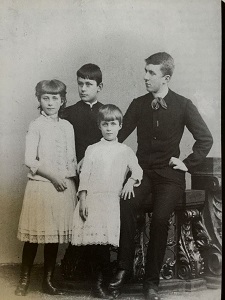
Hans Mayer (19 maart 1907 – 19 mei 2001)
Julia, Thomas, Carla en Heinrich Mann, rond 1889
De Amerikaanse schrijver Philip Roth werd geboren op 19 maart 1933 in Newark. Zie ook alle tags voor Philip Roth op dit blog.
Uit: The Humbling
“He’d lost his magic. The impulse was spent. He’d never failed in the theater, everything he had done had been strong and successful, and then the terrible thing happened: he couldn’t act. Going onstage had become agony. Instead of the certainty that he was going to be wonderful, he knew he was going to fail. It happened three times in a row, and by the last time nobody was interested, nobody came. He couldn’t get over to the audience. His talent was dead.
Of course, if you’ve had it, you always have something unlike anyone else’s. I’ll always be unlike anyone else, Axler told himself, because I am who I am. I carry that with me—that people will always remember. But the aura he’d had, all his mannerisms and eccentricities and personal peculiarities, what had worked for Falstaff and Peer Gynt and Vanya—what had gained Simon Axler his reputation as the last of the best of the classical American stage actors—none of it worked for any role now. All that had worked to make him himself now worked to make him look like a lunatic. He was conscious of every moment he was on the stage in the worst possible way. In the past when he was acting he wasn’t thinking about anything. What he did well he did out of instinct. Now he was thinking about everything, and everything spontaneous and vital was killed—he tried to control it with thinking and instead he destroyed it. All right, Axler told himself, he had hit a bad period. Though he was already in his sixties, maybe it would pass while he was still recognizably himself. He wouldn’t be the first experienced actor to go through it. A lot of people did. I’ve done this before, he thought, so I’ll find some way. I don’t know how I’m going to get it this time, but I’ll find it—this will pass.
It didn’t pass. He couldn’t act. The ways he could once rivet attention on the stage! And now he dreaded every performance, and dreaded it all day long. He spent the entire day thinking thoughts he’d never thought before a performance in his life: I won’t make it, I won’t be able to do it, I’m playing the wrong roles, I’m overreaching, I’m faking, I have no idea even of how to do the first line. And meanwhile he tried to occupy the hours doing a hundred seemingly necessary things to prepare; I have to look at this speech again, and by the time he got to the theater he was exhausted. And dreading going out there. He would hear the cue coming closer and closer and know that he couldn’t do it. He waited for the freedom to begin and the moment to become real, he waited to forget who he was and to become the person doing it, but instead he was standing there, completely empty, doing the kind of acting you do when you don’t know what you are doing. He could not give and he could not withhold; he had no fluidity and he had no reserve. Acting became a night-after-night exercise in trying to get away with something.”
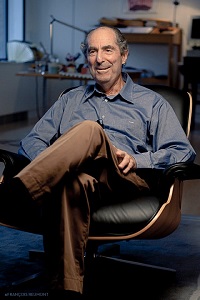
Philip Roth (19 maart 1933 – 22 mei 2018)
De Nederlandse dichter en schrijver Noud Bles werd op 19 maart 1945 in Vinkeveen geboren. Zie ook alle tags voor Noud Bles op dit blog.
Uit: Liszt voor de lichte linkerhand
‘Ben jij katholiek opgevoed?’ vraagt Károly terwijl hij de spaghettibandjes over haar schouders omlaag schuift.
‘Nee,’ zegt Zsuzsi. ‘Moet dat?’ Op haar bleke huid verschijnt kippenvel. ‘Je hebt koude handen.’
‘Wacht tot ik gespeeld heb. Dan springen de vonken van mijn vingers. Een katholiek verleden is handig. Liszt was in naam katholiek.’
Ze helpt hem de sluiting op haar rug te openen. Hij kijkt langdurig naar haar meisjesbovenlichaam.
‘Ik voel me net een schilderij,’ klaagt ze.
‘Iets meer wegdraaien,’ wijst hij. ‘En je rechterarm naar voren. Maak de beweging.’
‘Zo?’
‘Nu weer terug.’
‘En?’
‘Ik wil de Introductie nog één keer oefenen.’
‘Alleen met mijn trui aan.’
Hij heeft zich al omgedraaid naar de piano en bladert naar het begin van de partituur.
Vlak boven de toetsen zweven zijn handen. Nu gaat hij nog drie keer verzitten, weet ze. Daarna sluit hij kort tweemaal zijn ogen. Ineens is er de eerste toon.
***
Met zijn ogen dicht wacht hij tot het publiek in de zaal volkomen stil is. Het eerste deel begint met een uiterst langzame wandeling van de rechterhand. Tijdens de loop gaan zijn ogen open. Een prachtige rechterhand heeft hij. Een hand die ver uit de manchet van zijn overhemd steekt. Het nieuwe overhemd is speciaal gekocht voor het concert. Als de rechterhand terugkeert naar het midden van het klavier schudt hij even met de mouw van zijn jacquet.
Ik hoop niet dat vrouwelijke pianisten een jacquet moeten dragen tijdens hun optreden.”
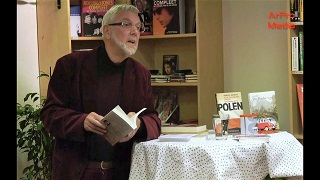
Noud Bles (Vinkeveen, 19 maart 1945)
De Amerikaanse schrijfster Lynne Sharon Schwartz werd geboren op 19 maart 1939 in New York. Zie ook alle tags voor Lynne Sharon Schwartz op dit blog.
Uit: I Wish I Could Say the Same
“My mother was not prudishly silent about sex. Many mothers of her generation behaved (and looked) as though sex were not part of the basic human repertoire. For that difference my friends envied me, growing up, and it’s true I didn’t bear the burden of the common inhibitions. I had others, though, so I’m not sure their envy was war-ranted. I imagine that my childhood friends managed to get over their sexual inhibitions (people do, as a rule), but other kinds of learned fears may be more tenacious. From remarks my mother let drop, it was clear that she and my father engaged in sex (“did it,” as we used to say), that she assumed one day I would do the same, and that it was a good thing in general. The crucial words are “let drop.” Sex was something to be alluded to coyly, even lewdly—a born performer, she could do a great delivery of off-color jokes, though never very gross ones. But it was not a topic for extended discussion, either entertaining or serious. I once asked her what we would do if I had a baby before marriage. “Out of wed-lock,” as we then said. That was a calamitous thing to have happen, or so it seemed to me. She smiled at my question; the likelihood must have appeared remote. Besides being ten years old, I was bookish and unworldly and had shown no signs of incipient promiscuity. “If you had a baby, we would take care of it,” she said kindly. End of story. I was touched by her answer. I still am. Nowadays I suppose an enlight-ened mother would probe into the whys and wherefores of such a question, but at the time I was satisfied. My father was the more close-mouthed on the subject. To me he never mentioned anything concerning sex, though I found out years later, with some dismay, that he was more frank with my older sister. “Sleep with him if you must:’ he advised her about one boyfriend, “but don’t marry him.” What I would have given to be addressed that way, as if I were capable of both judgment and passion! Probably he was more frank with my younger brother too, in the manner of fathers and sons, whatever that might have been.”
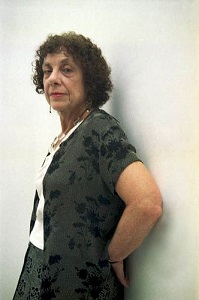
Lynne Sharon Schwartz (New York, 19 maart 1939)
De Oekraïense schrijfster en dichteres Lina Kostenko werd op 19 maart 1930 geboren in Rzhyshchiv. Zie ook alle tags voor Lina Kostenko op dit blog.
In childhood I floated above dahlias
In childhood I floated above dahlias,
and grew up, flying, for years.
Now I walk the paths and trails
and pave the way through swamps.
My heart has tired of rattling.
I endure and quietly pave the way.
I who learned to fly in dreams …
I, who could have walked on spires …
A terrifying kaleidescope
A terrifying kaleidescope:
at this moment someone somewhere died.
At this moment. At this very moment. Each of every minute.
A ship has broken apart. The Galapagos Islands burn.
And the bitter star-wormwood* descends above the river Dnieper.
Somewhere an explosion. Somewhere a volcano. Ruin. Destruction.
Someone gets better. Someone falls. Someone begs: “Don’t shoot!”
He doesn’t know the tales of Sheherezade.
Lorelei doesn’t sing above the Rhine.
A comet flies. A child plays.
Faces bloom, not effaced by fear.
Blessed is every minute of life
on these universal scythes of death!
Vertaald door Michael M. Naydan
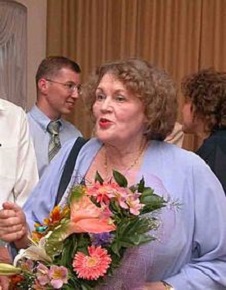
Lina Kostenko (Rzhyshchiv, 19 maart 1930)
De Duitse schrijfster Kirsten Boie werd geboren op 19 maart 1950 in Hamburg. Zie ook alle tags voor Kirsten Boie op dit blog.
Uit: Alhambra
„Er atmete langsamer. Dies ist ein Wald. Aber eben noch war ich in einer Gasse.
Sein Herz galoppierte noch immer, sein Atem jagte, langsam atmen, langsam atmen, aber das Schwirren kam nicht wieder.
Irgendwo aus der Ferne hörte er Geräusche, als würde Metall auf Metall geschlagen. Eine Stimme, die etwas rief, weit entfernt. Den Schrei eines Esels.
Er ließ die Augen geschlossen und erlaubte seinen Gedanken zu tun, was sie wollten. Die Verwirrung kam nicht wieder. Er begriff, was an diesen Geräuschen so merkwürdig war: All das, was fehlte.
Kein Motorenlärm, dachte Boston und war gleichzeitig erstaunt und glücklich, dass er etwas begriffen hatte und es in seinen Gedanken formulieren konnte, dass sein Gehirn also wieder funktionierte, wahrnahm, verstand. Wie tief muss dieser Wald sein, dass man keinen Motorenlärm hört. Und trotzdem hängt in der Luft ein Schleier aus Geräuschen, Stimmen, ein Holpern und Klappern, unvertraut.
Gut. Er konnte wieder nachdenken, das war gut. Wenn er wieder er selbst war, konnte alles andere nicht mehr so schrecklich sein.
Boston öffnete die Augen. Die Sonne schien noch immer durch die Pinienwipfel.
Isabella sah auf zum Himmel. Noch keine Sterne.
Ferdinand hatte sich verabschiedet, sie konnte sich denken, wohin. Boten waren gekommen mit Nachrichten, Bitten, Fragen; sie hatte mit dem Hauptmann der Burgwache gesprochen, einem klugen Mann; der Nachmittag war vergangen. Über den Dächern zeigte sich der Mond. Er war groß und rund und sah aus wie eine Orange.
Wie schön dies alles ist, dachte sie und ließ sich auf einem Sessel nieder, den ein Diener heraus in den Hof getragen hatte. Und zum Dank, Herr mein Gott, will ich tun, was in meiner Macht steht, um dafür zu sorgen, dass alle Ungläubigen bekehrt werden und Dich preisen wie ich, das gelobe ich bei allem, was mir heilig ist.“

Kirsten Boie (Hamburg, 19 maart 1950)
Cover
De Ierse dichter William Allingham werd geboren op 19 maart 1824 in Ballyshannon, Donegal. Zie ook alle tags voor William Allingham op dit blog.
The Bubble
See the pretty planet!
Floating sphere!
Faintest breeze will fan it
Far or near;
World as light as feather;
Moonshine rays,
Rainbow tints together,
As it plays.
Drooping, sinking, failing,
Nigh to earth,
Mounting, whirling, sailing,
Full of mirth;
Life there, welling, flowing,
Waving round;
Pictures coming, going,
Without sound.
Quick now, be this airy
Globe repelled!
Never can the fairy
Star be held.
Touched–it in a twinkle
Disappears!
Leaving but a sprinkle,
As of tears.
Places And Men
In Sussex here, by shingle and by sand,
Flat fields and farmsteads in their wind-blown trees,
The shallow tide-wave courses to the land,
And all along the down a fringe one sees
Of ducal woods. That ‘dim discovered spire’
Is Chichester, where Collins felt a fire
Touch his sad lips; thatched Felpham roofs are these,
Where happy Blake found heaven more close at hand.
Goodwood and Arundel possess their lords,
Successive in the towers and groves, which stay;
These two poor men, by some right of their own,
Possessed the earth and sea, the sun and moon,
The inner sweet of life; and put in words
A personal force that doth not pass away.
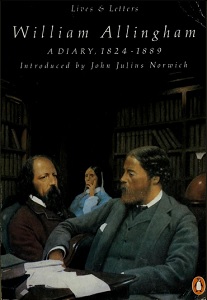
William Allingham (19 maart 1824 – 18 november 1889)
Cover biografie
De Baltisch Duitse dichteres Julie Katharina von Hausmann werd geboren in Riga op 19 maart 1826. Zie ook alle tags voor Julie Hausmann op dit blog.
Von Gnade will ich leben
Von Gnade will ich leben,
auf Gnade sterben auch,
auf Gnade mich ergeben
bis zu dem letzten Hauch.
Der Quell all meiner Freude,
all meines Trostes Grund,
die Kraft in jedem Leide
bleibt Gottes Gnadenbund.
Wohl hat auf allen Wegen
viel Lieb und Freundlichkeit,
viel tausendfachen Segen
mein Gott für mich bereit;
wohl in der Näh und Ferne
erkenn´ ich seine Güt,
hier unten Baum und Blüt.
Ich weiß, was sie verkünden,
hab´ meine Lust daran.
Doch daß in meinen Sünden
ich Gnade finden kann,
das ist das Allergrößte,
dem kommt doch gar nichts gleich;
das ist der Gaben beste,
macht auch den Ärmsten reich.
Wie müßt´ ich doch verzagen,
wo fänd´ ich Kraft und Licht,
wie könnt´ ich selbst mich tragen,
Trüg´ mich die Gnade nicht!
Der Gnad allein ergeben
stimmt alle mit mir ein:
Von Gnade will ich leben,
durch Gnade selig sein!
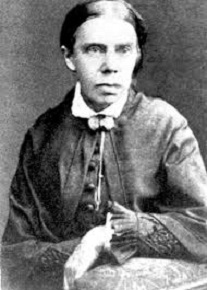
Julie Hausmann (19 maart 1826 – 2 augustus 1901)
Zie voor nog meer schrijvers van de 19e maart ook mijn blog van 19 maart 2018 en ook mijn blog van 19 maart 2017 deel 1 en eveneens deel 2.


